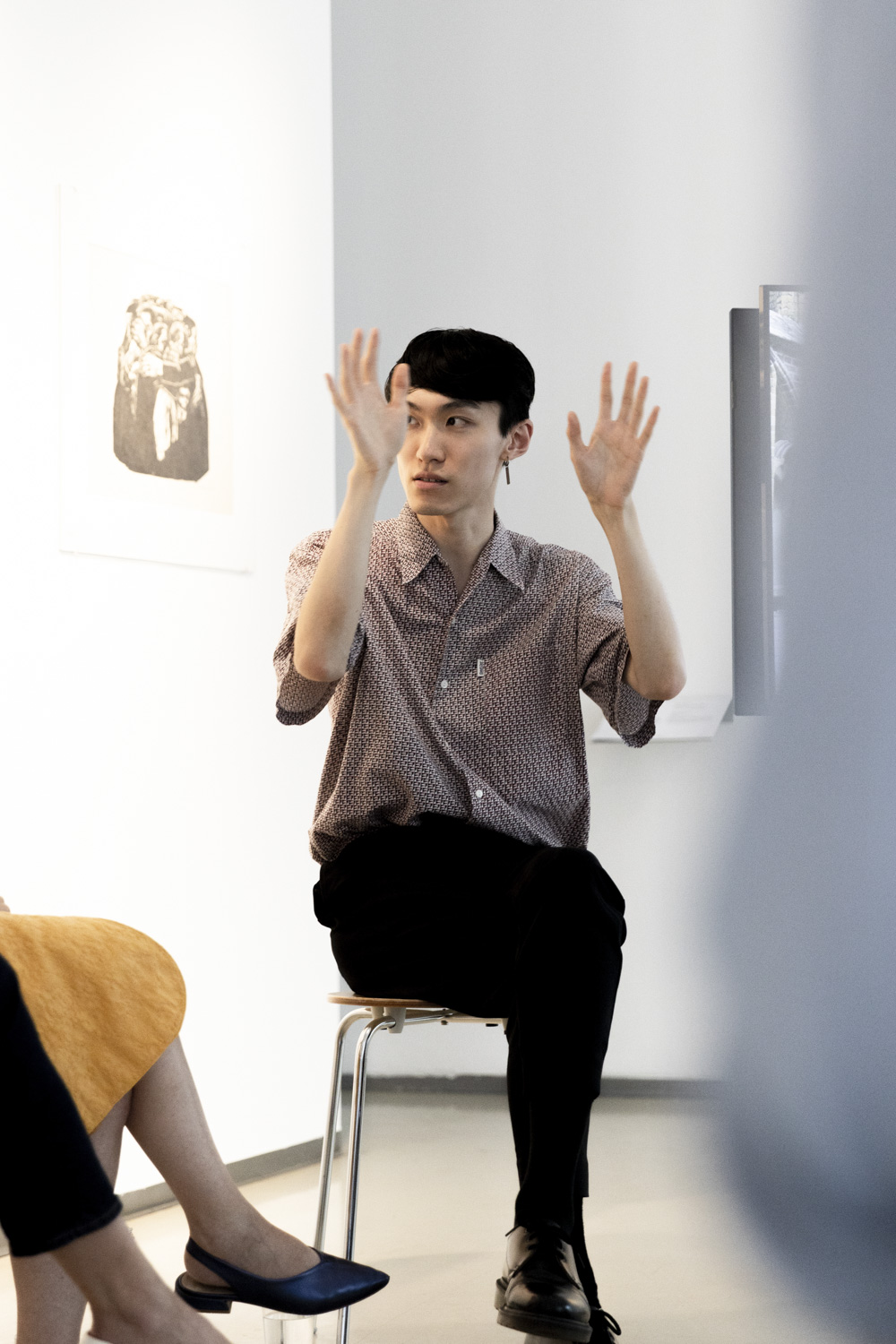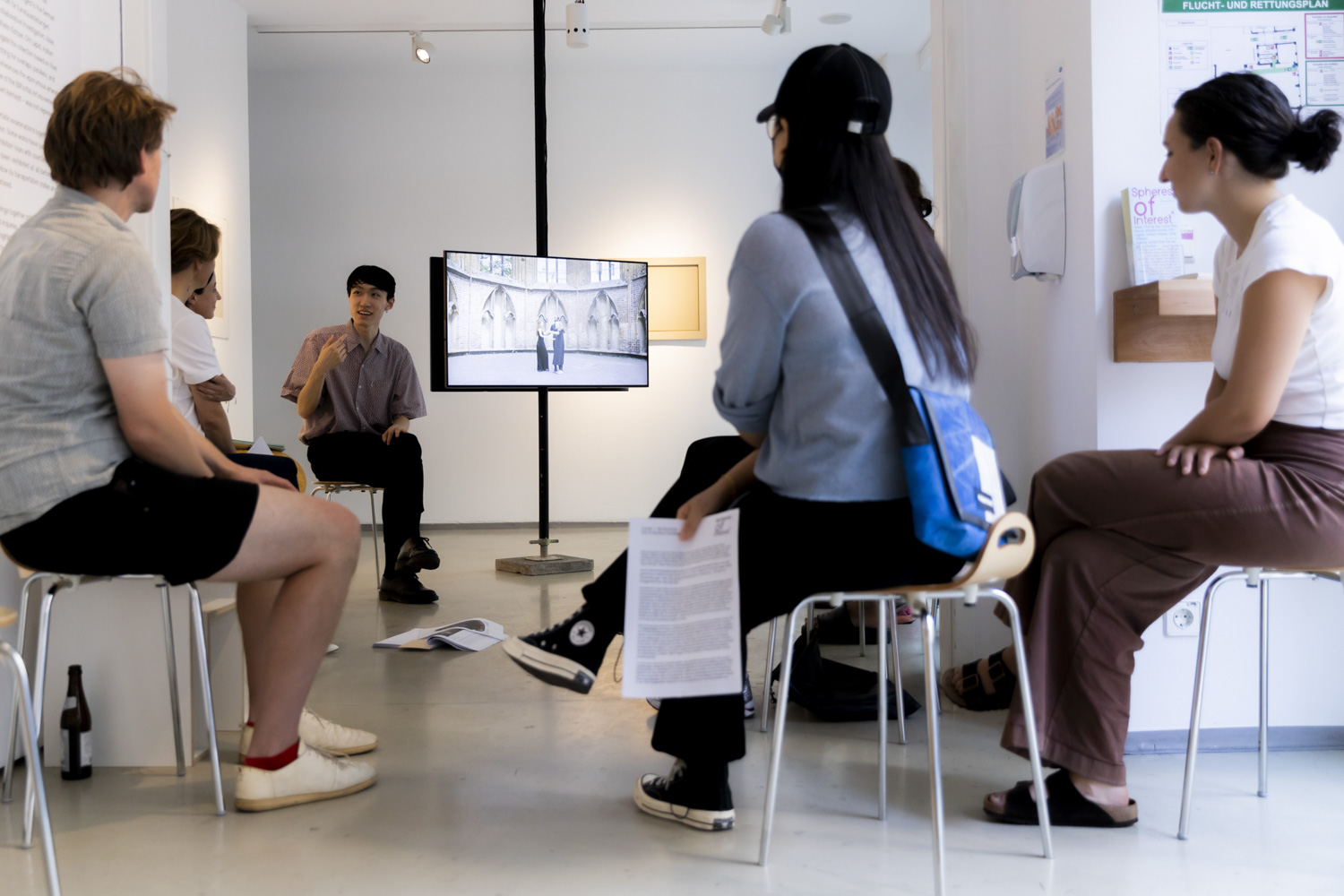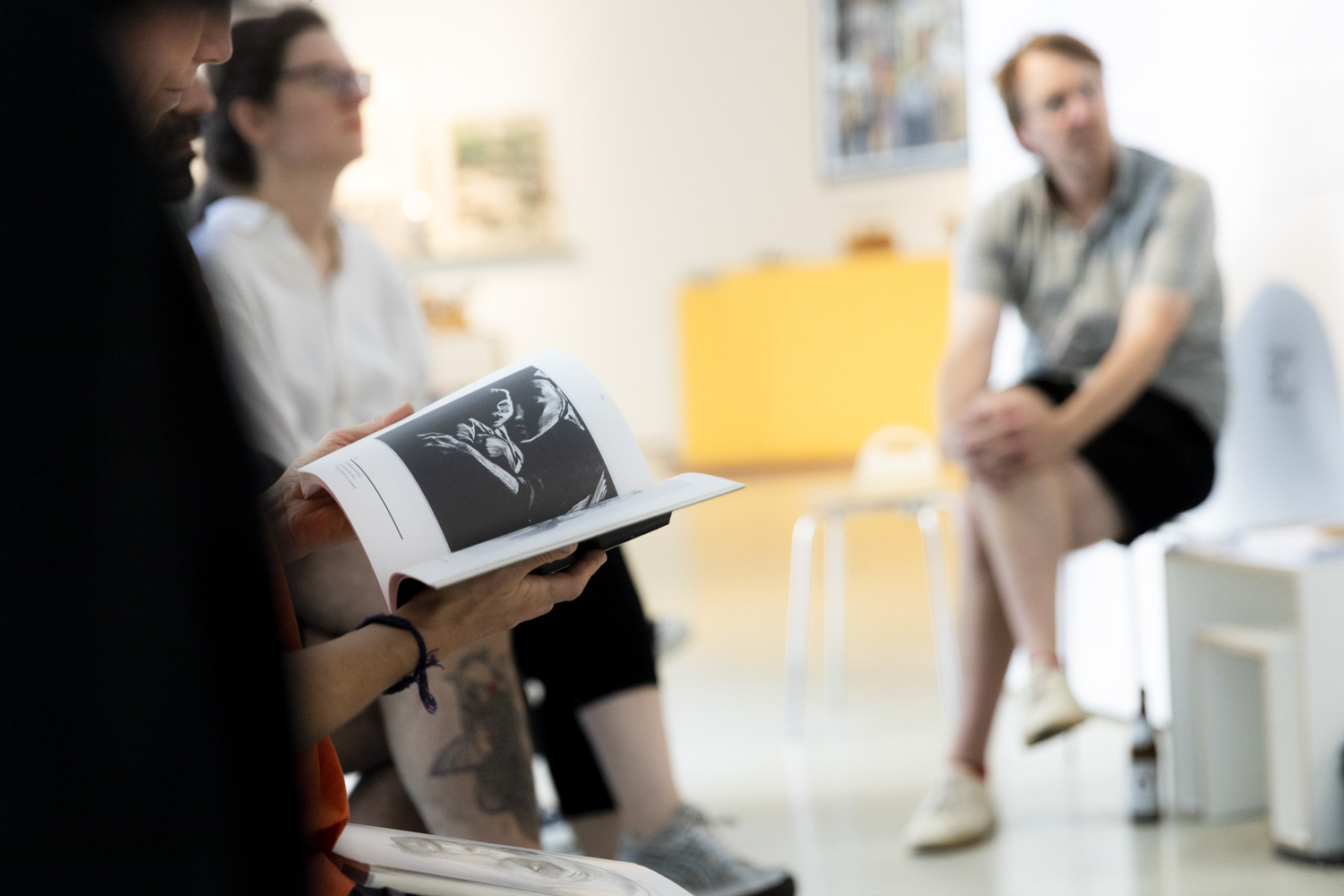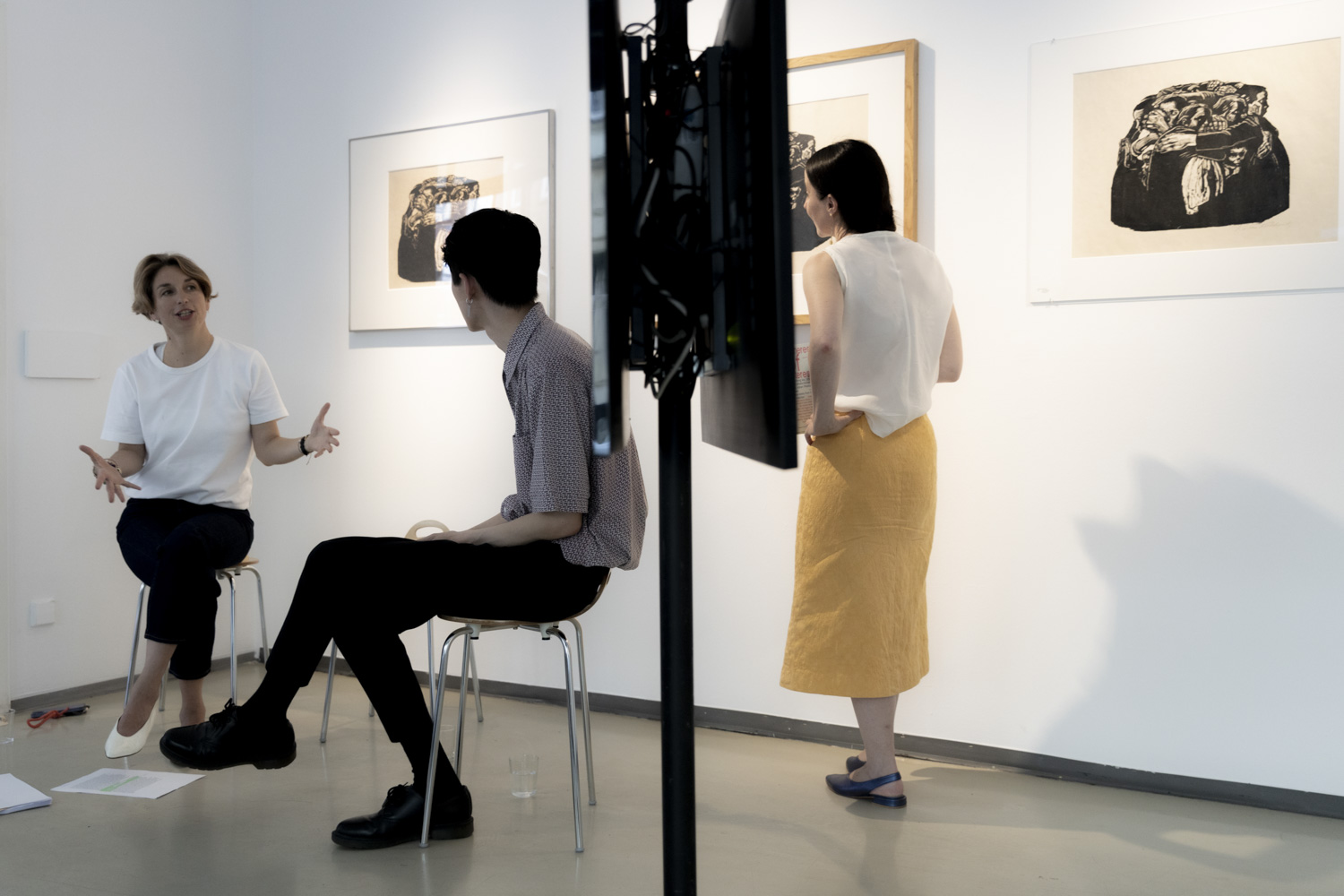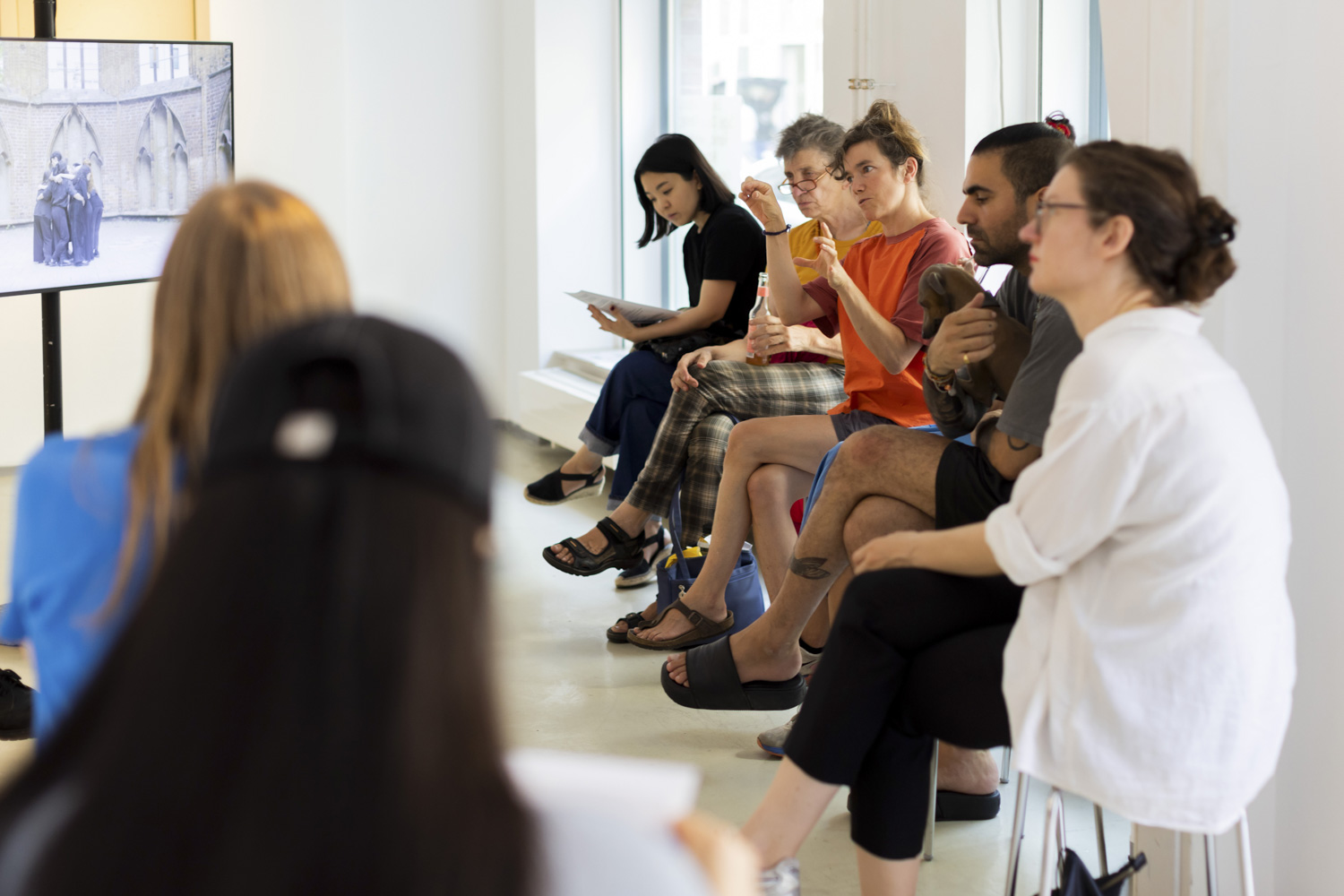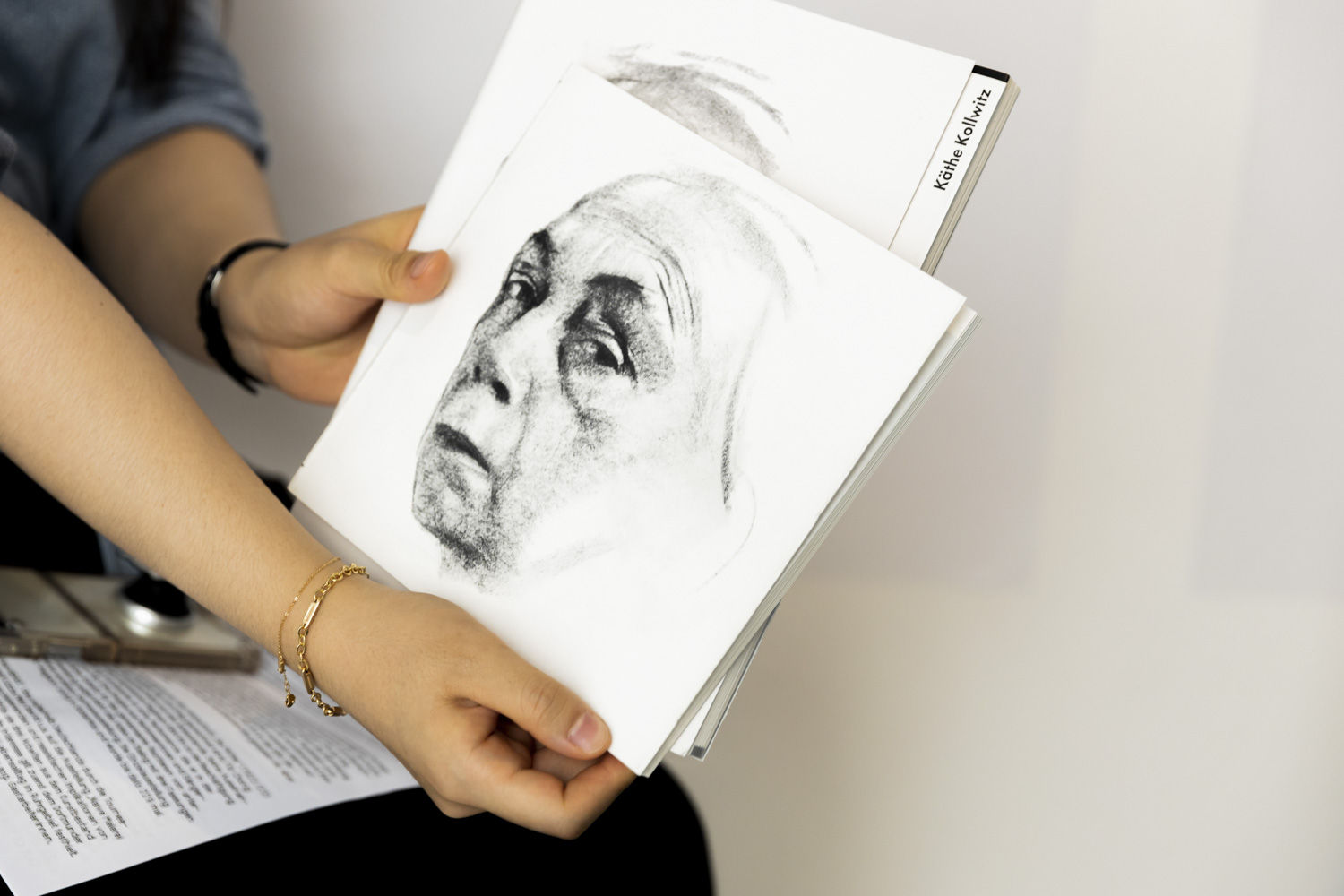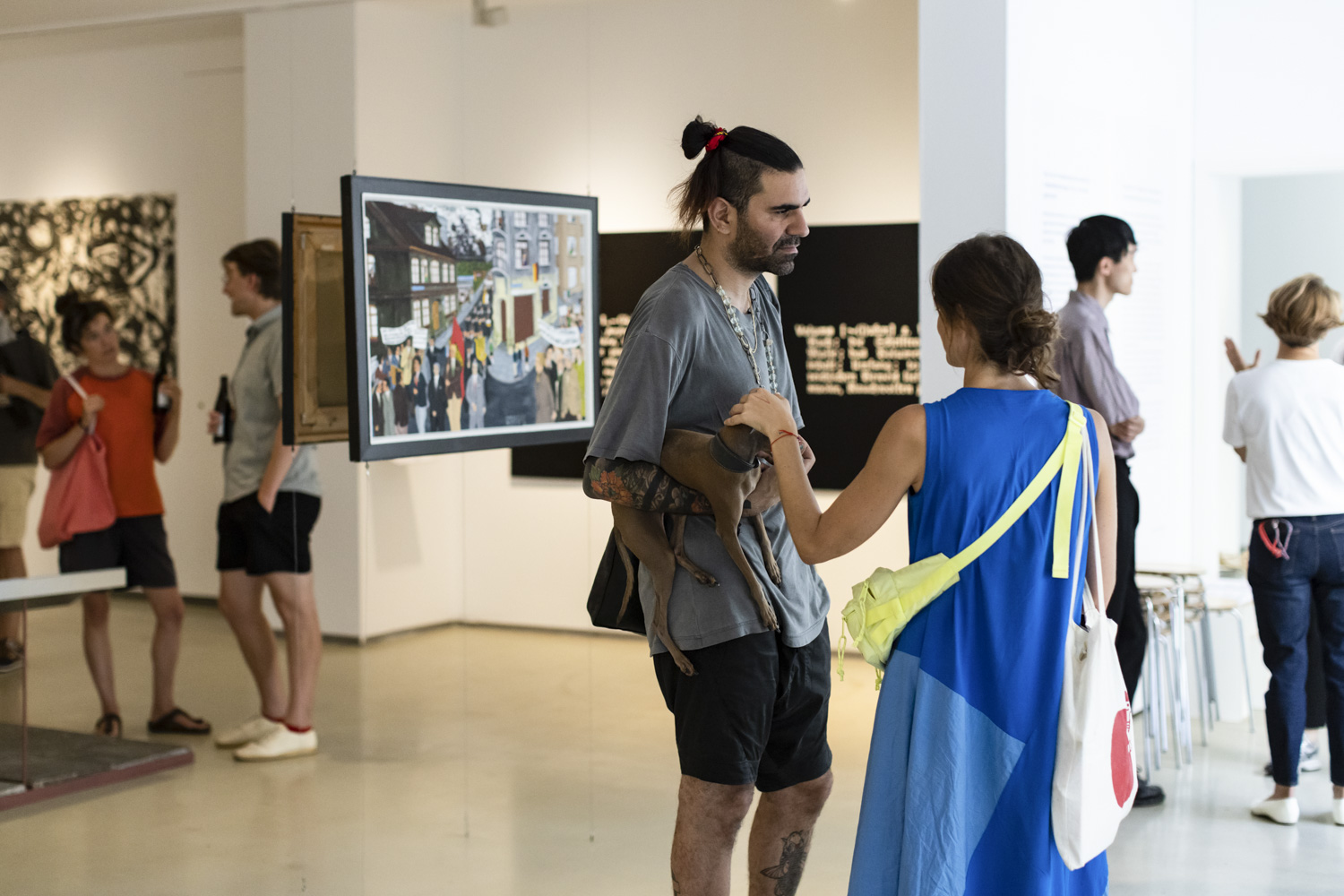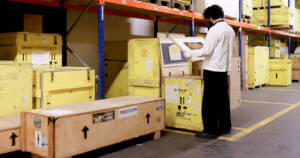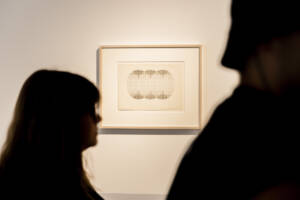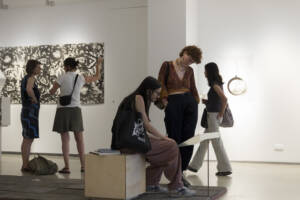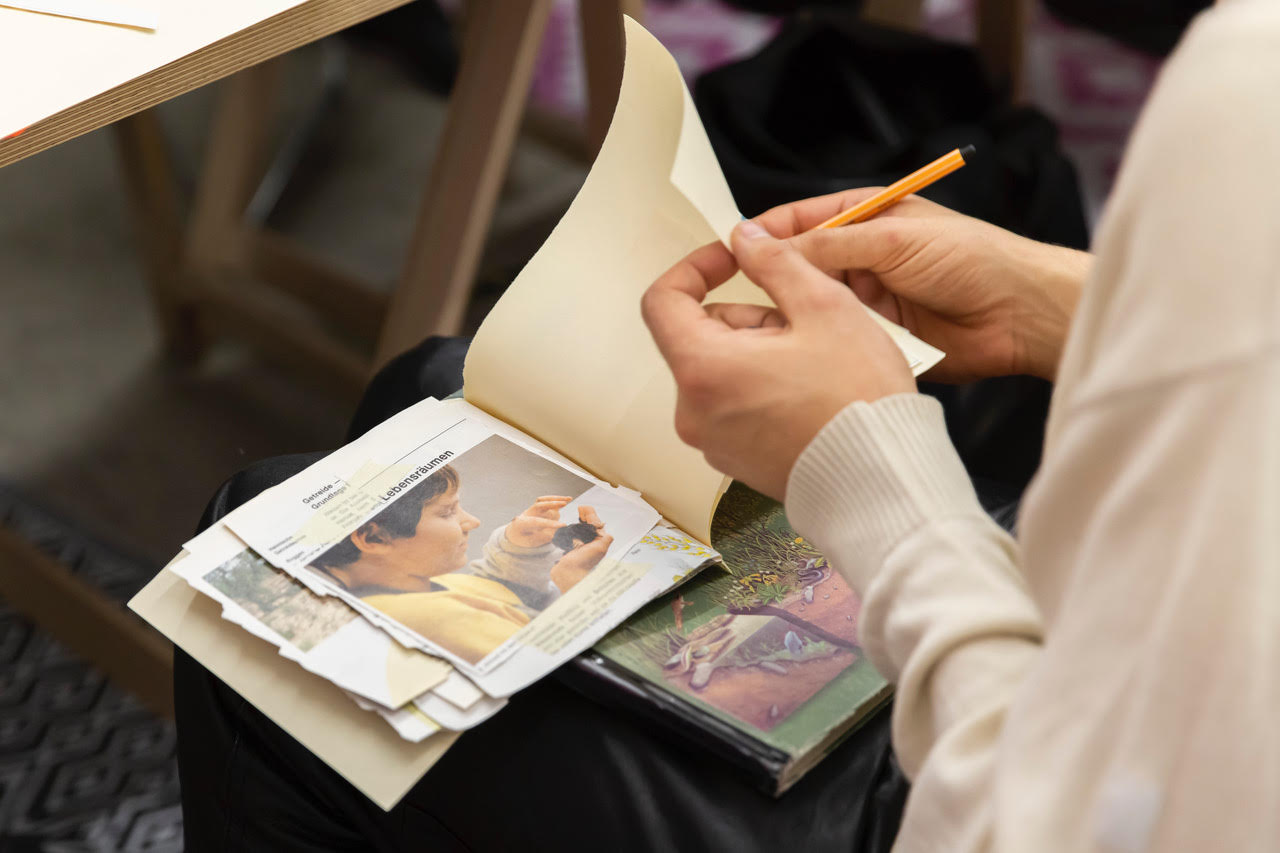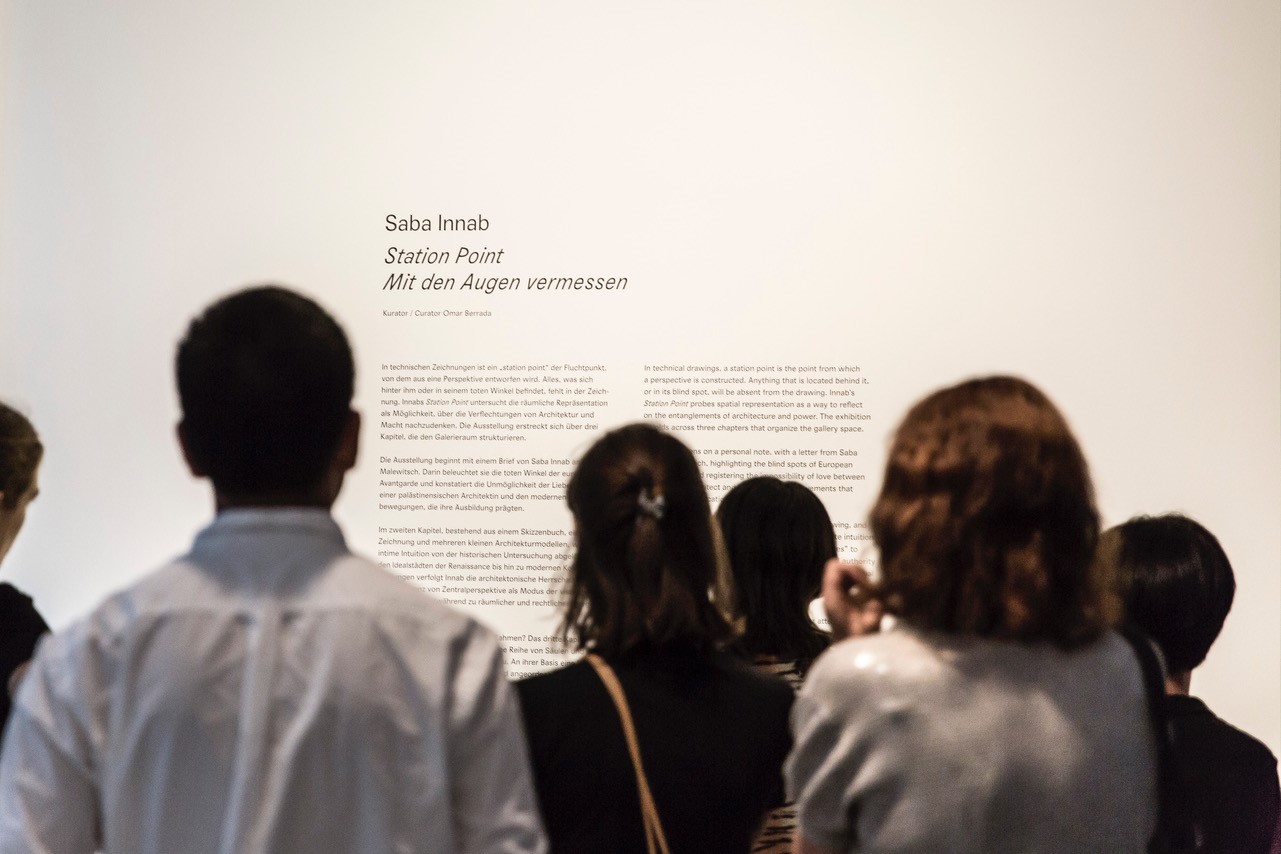In conversation with curators Inka Gressel and Susanne Weiß.
Isaac Chong Wai has developed a performance referencing the woodcut “Die Mütter” (The Mothers) (1922-23) by Käthe Kollwitz, which portrays women and children marked by war. For Chong Wai, this image is a symbol of solidarity and resistance. His work surrounding collective bodies under politically repressive regimes has led to his interest in songs of lamentation.
For this exhibition, he created a performance that was recorded in the Klosterruine (monastery ruin, now an outdoor cultural venue) in Berlin’s Mitte district. A group of performers and singers opens up the protected space created by Käthe Kollwitz and fills it anew by reciting various hymns together. The exhibition presents the video of the performance in dialogue with three versions of the woodcut, each of which has recently returned from a different touring exhibition. The Käthe Kollwitz solo exhibition “Grafiken, Plastik” (Prints, Sculptures) began in South Africa in 1959 and has been shown around the world 229 times to date.
Isaac Chong Wai’s artistic practice is characterised by an interdisciplinary approach that combines conceptual, political and performative aspects. It is motivated by the urgency of social change and global phenomena. His subtle, poetic, and still critical works undercut systems of meaning and invite viewers to rethink their ideas of the body, powerlessness, violence, collectivism, leaderlessness and sadness.
Isaac Chong Wai (*1990 in Hong Kong) studied fine arts at the Academy of Visual Arts in Hong Kong as well as art in public space and new artistic strategies at the Bauhaus-Universität in Weimar. He lives in Berlin and Hong Kong. His works and performances were most recently shown at Zilberman, Istanbul (TR, 2022); Bundeskunsthalle Bonn (2022); the National Museum of Modern and Contemporary Art, Seoul (KR, 2020); the Innsbruck Biennale (AT, 2020); the Museum of Contemporary Art in Taipei (TW, 2019) and at the Guangdong Times Museum in Guangzhou (CN, 2019).
